Are You Looking For a Prenatal Physical Therapist In Greer, South Carolina?
Conveniently located off Interstate 85 in South Carolina
980 Batesville Rd Suite C Greer, SC 29651
Free parking available

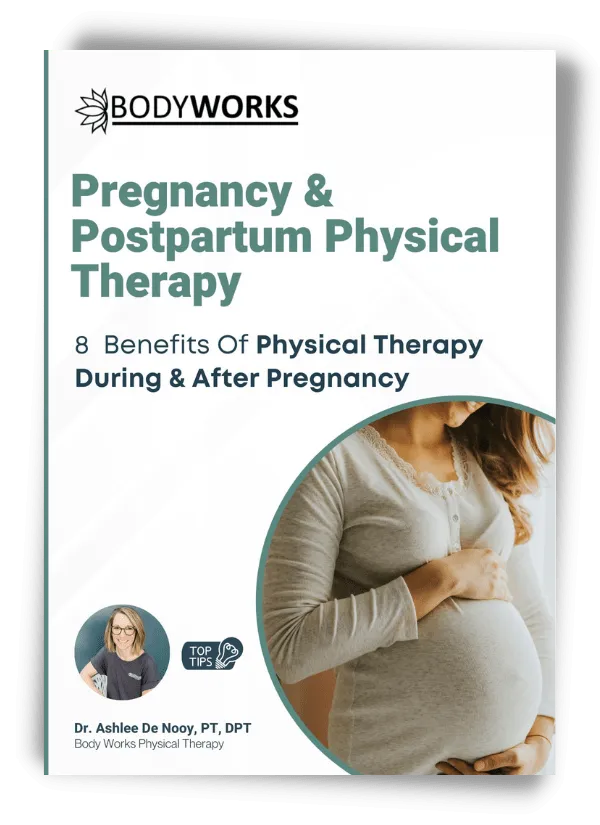
Download Your FREE Prenatal Physical Therapy Information Pack:
“8 Benefits of Physical Therapy During & After Pregnancy”
Click the button below to get your FREE Report
Does Any of This Sound Familiar?
Are you preparing for birth and experiencing pain or discomfort in your lower back, hips, or pelvis that makes it difficult to move with ease?
Are you feeling tension or heaviness in your pelvic area, and worried about how it might affect your comfort during pregnancy or childbirth?
Do you find it challenging to stay active or engage in daily tasks due to muscle weakness, joint pain, or other physical limitations?
Are you hoping to prevent issues like diastasis recti, bladder control difficulties, or pelvic pain that can arise during pregnancy?
Are you seeking a natural way to feel stronger, more comfortable, and prepared for a smooth delivery and a quicker postpartum recovery?
If you answered YES to any of the above, you're not alone. At Body Works Women's Health & Wellness we support women just like you every day. It may be time to explore how specialized prenatal physical therapy can help you feel empowered, comfortable, and ready for a healthy pregnancy and birth.

Body Works Women's Health & Wellness
Greer, South Carolina
Still Feeling A Little Confused And Don't Know What To Do?
#1 Option (👍 most popular)

#2 Option - Send Us a Message

#3 Option - Book Appointment

What is Prenatal Physical Therapy and Why is it Important?
Prenatal physical therapy supports a healthy, comfortable pregnancy through specialized exercises, stretches, and therapeutic techniques. It helps address challenges like back pain, pelvic discomfort, and reduced mobility by strengthening the core, pelvic floor, and key muscle groups.
This therapy is essential because it alleviates discomfort, prepares the body for childbirth, reduces pregnancy-related complications, and supports quicker postpartum recovery. With expert guidance, prenatal physical therapy enables expectant mothers to manage pain, stay active, and feel empowered throughout their pregnancy.

Is Pregnancy Discomfort Holding You Back?

Not sure who to ask?
Not sure what to do next?
Not sure who can help?
Please fill out the form below and chat with one of our team members about your right next step
The Body Works Women's Health & Wellness Prenatal Physical Therapy Program – Supporting a Comfortable, Confident Pregnancy
Step 1 - Comprehensive Evaluation and Assessment
Our first step is a thorough assessment of your physical health, pregnancy history, and any discomfort or challenges you’re experiencing.
This includes evaluating your core, pelvic floor, and overall mobility to identify areas that need support. Our goal is to gain a clear understanding of your unique needs to create a treatment plan tailored for you.
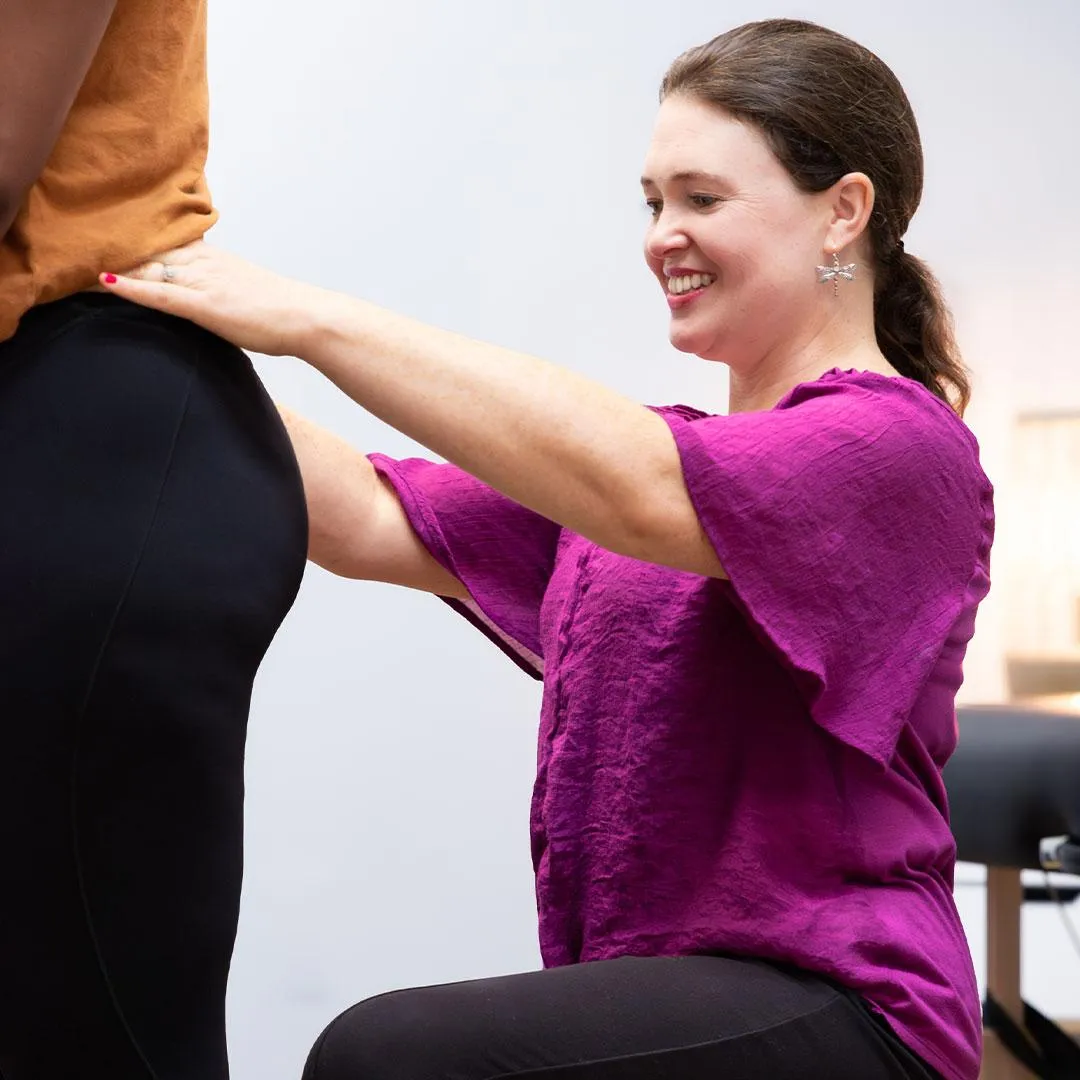
Step 2 - Customized Prenatal Therapy Plan
Based on the evaluation, we design a personalized therapy plan focused on strengthening and stabilizing key muscles, alleviating discomfort, and preparing your body for childbirth.
This may include a combination of gentle exercises, posture techniques, core and pelvic floor strengthening, and lifestyle guidance to support a healthy, active pregnancy.
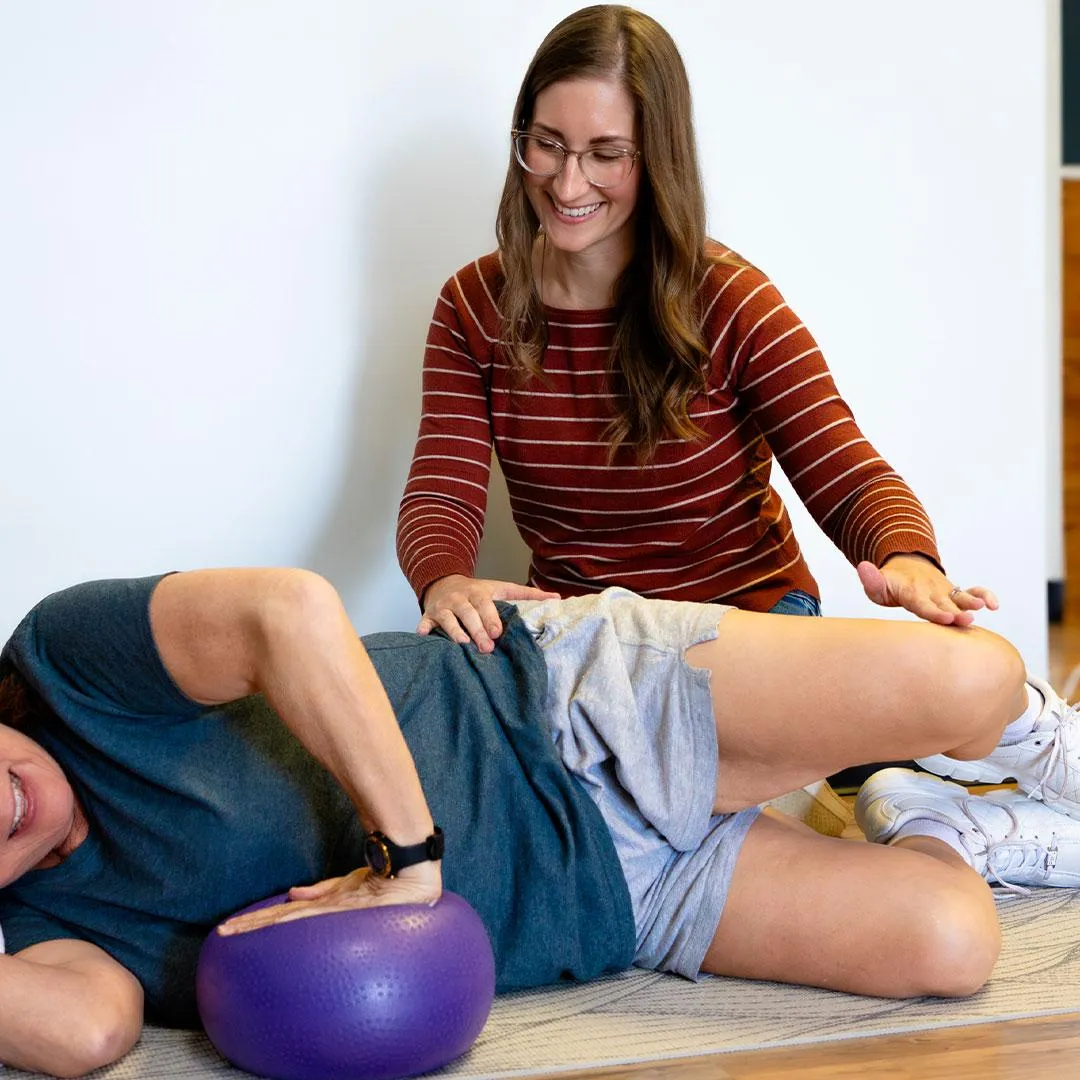
Step 3 - Sustained Comfort and Preparation for Delivery
Our final step focuses on ongoing support and gradual progressions to ensure lasting comfort and readiness for childbirth.
We’ll provide you with practical tools and techniques to maintain strength and flexibility, so you can approach delivery feeling strong, prepared, and confident.

Is the Prenatal Physical Therapy Program Right for You?
Our expert team of physical therapists at Body Works Women's Health & Wellness specializes in prenatal care, helping expectant mothers feel strong, supported, and comfortable as their bodies adapt to pregnancy.
Here’s just a few ways our team can support you:
We’ll evaluate your unique needs, identify any pain points or muscle weaknesses, and explain how to address them right from your first session.
Often within the first 20 minutes of your evaluation, we create a customized plan to target areas of discomfort or instability so you can start feeling relief faster.
By building strength and resilience in the core and pelvic areas, we’ll help you feel energized and able to enjoy daily activities without discomfort.
Our natural therapies can help you avoid the need for surgery or other invasive procedures, providing a safe, gentle way to support your body during pregnancy.
We prioritize sustainable results, helping you avoid unnecessary doctor visits and treatments that don’t address the root of your concerns.
We’ll support you in restoring the comfort, mobility, and ease pregnancy may have impacted, empowering you to stay active and enjoy each stage.
Ready to Start? It’s your choice—continue feeling unsupported, or take the first step toward a comfortable, confident pregnancy. Let’s help you get back to doing what you love!
Is Pregnancy Discomfort Holding You Back? Try One of Our Free Options
Option #1 (👍 most popular)

Option #2


From Consultation to Treatment
What to Expect at Your First Visit to Body Works
We're excited to see you at your appointment! We want to make sure you feel comfortable and well-informed, so don't hesitate to ask us any questions about our treatments, our clinic, or even our payment options. Our goal is to help you get back to living your life free of pain, so let's work together to make that happen!
Discuss your story and health goals
Complete assessment
Discover your options
Start a custom treatment plan


Here's Why Over 1,000+ Women Choose Body Works Women's Health & Wellness

Specialised Expertise: Our clinic offers specialised care from highly-trained physical therapy in various fields like sports rehab and chronic pain management.
Comprehensive Approach: We provide holistic treatment plans combining manual therapy, exercises, and cutting-edge technology for a well-rounded approach.
Cutting-Edge Facilities: Equipped with state-of-the-art facilities and advanced equipment to support patients' recovery.
Proven Track Record: Our clinic's reputation is built on successful patient outcomes and positive feedback, fostering a supportive environment for rehabilitation.
Frequently Asked Questions About Prenatal Physical Therapy
What is prenatal physical therapy?
Prenatal physical therapy is specialized care provided to women during pregnancy to help them manage physical discomfort, maintain strength and flexibility, and prepare the body for childbirth. It focuses on areas commonly affected during pregnancy, such as the back, hips, pelvic floor, and core muscles.
Why should I consider prenatal physical therapy?
Prenatal physical therapy can help alleviate common pregnancy-related discomforts such as lower back pain, pelvic pain, sciatica, and muscle tension. It also helps strengthen muscles needed for labor and delivery, and can prevent or minimize complications like diastasis recti and pelvic floor dysfunction.
When should I start prenatal physical therapy?
You can start prenatal physical therapy at any point during your pregnancy, though many women begin in the second trimester when physical discomforts become more noticeable. It’s a good idea to consult with your healthcare provider before starting therapy.
What conditions can prenatal physical therapy treat?
Prenatal physical therapy can address several conditions, including:
- Lower back pain
- Pelvic girdle pain
- Sciatica or nerve pain
- Diastasis recti prevention
- Pelvic floor dysfunction
- Joint pain (hips, knees, etc.)
- Postural problems
- Swelling and edema in the legs
Is prenatal physical therapy safe for my baby?
Yes, prenatal physical therapy is safe for both the mother and baby when performed by a trained therapist. The exercises and techniques used are tailored specifically for pregnant women, ensuring they are low-impact and designed to support the changing body during pregnancy.
How often should I see a prenatal physical therapist?
The frequency of visits depends on your individual needs. Many women benefit from attending physical therapy once a week or every other week throughout pregnancy. Your therapist will assess your condition and create a personalized plan that suits your schedule and symptoms.
Can prenatal physical therapy help with labor preparation?
Yes, prenatal physical therapy can play a crucial role in preparing your body for labor and delivery. Therapists teach techniques to strengthen the pelvic floor, improve flexibility, and enhance endurance, which can help with pushing during labor and reduce the risk of complications.
Can physical therapy prevent or treat diastasis recti?
Prenatal physical therapy can help minimize the risk of developing diastasis recti (abdominal muscle separation) through specific core strengthening exercises. If diastasis recti occurs, your therapist can guide you on how to manage and treat it after birth.
Will prenatal physical therapy help with pelvic pain?
Yes, pelvic pain is a common issue during pregnancy due to the changes in weight distribution and ligament laxity. Prenatal physical therapy offers exercises and manual techniques to relieve this pain and improve mobility.
What exercises are safe during prenatal physical therapy?
Your physical therapist will design a program tailored to your stage of pregnancy and symptoms.
Safe exercises typically include:
- Gentle stretches to relieve tension
- Pelvic floor strengthening
- Core stability exercises
- Breathing techniques
- Postural correction exercises
- Low-impact aerobic activities
Do I need a referral to start prenatal physical therapy?
This depends on where you live and your insurance provider. In many cases, you can see a physical therapist without a referral, but it’s best to check with your insurance company or healthcare provider to be sure.
What should I wear to prenatal physical therapy sessions?
Wear comfortable, stretchy clothing that allows for movement, such as leggings and a loose top. Your therapist may need to assess your posture, belly, and pelvic region, so clothing that is easy to adjust is helpful.
Can prenatal physical therapy help with swelling or edema?
Yes, prenatal physical therapists can offer advice on managing swelling or edema in the legs and feet, often through exercises, proper body positioning, and manual lymphatic drainage techniques to improve circulation.
Will prenatal physical therapy help with sciatica?
Yes, sciatica is a common complaint during pregnancy, caused by pressure on the sciatic nerve from the growing uterus. Prenatal physical therapy includes exercises and stretches that can alleviate pressure on the nerve and reduce pain.
Is it safe to do prenatal physical therapy if I have a high-risk pregnancy?
If you have a high-risk pregnancy, it’s essential to consult with your healthcare provider before starting prenatal physical therapy. In many cases, modified exercises can be designed to accommodate your condition and ensure your safety.
Can prenatal physical therapy help with posture?
Yes, pregnancy can alter your posture due to changes in the center of gravity and additional weight. Prenatal physical therapy includes exercises to improve posture, strengthen the back, and reduce strain on the spine and hips.
Can I continue prenatal physical therapy up until I deliver?
In most cases, you can continue prenatal physical therapy until your due date, as long as you and your baby are healthy. Your therapist will modify your exercises as your pregnancy progresses to ensure they remain safe and effective.
Will prenatal physical therapy help with postpartum recovery?
Yes, prenatal physical therapy can set the foundation for a smoother postpartum recovery. By strengthening your core and pelvic floor muscles during pregnancy, you may experience less muscle weakness and discomfort after childbirth.
What are the benefits of prenatal physical therapy for C-section moms?
Prenatal physical therapy can help women who are planning or may need a C-section by preparing their bodies for surgery. It focuses on improving core and pelvic floor strength, which can aid in a quicker recovery after the procedure.
Please note that these FAQs provide general information and should not replace personalised advice from a qualified healthcare professional. It is important to consult with a trusted physical therapist to assess your individual case and determine the most suitable treatment plan for your Diastasis Rectus Abdominis.
Frustrated With Your Postpartum Recovery?

Not sure who to ask?
Not sure what to do next?
Not sure who can help?
Please fill out the form below and chat with one of our team members about your right next step

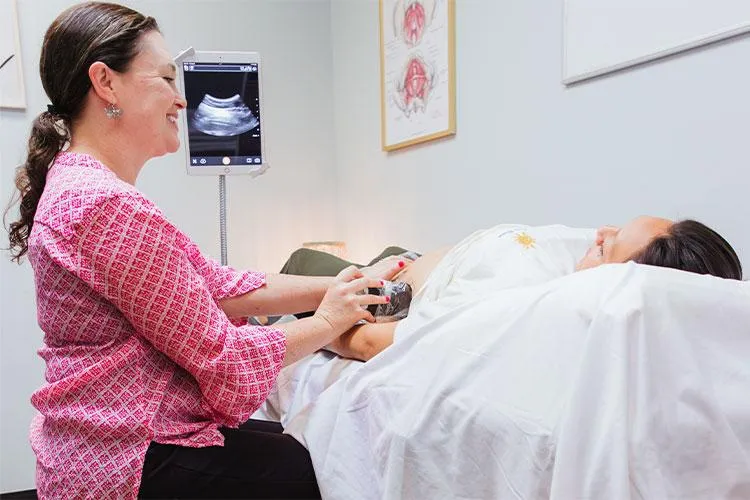
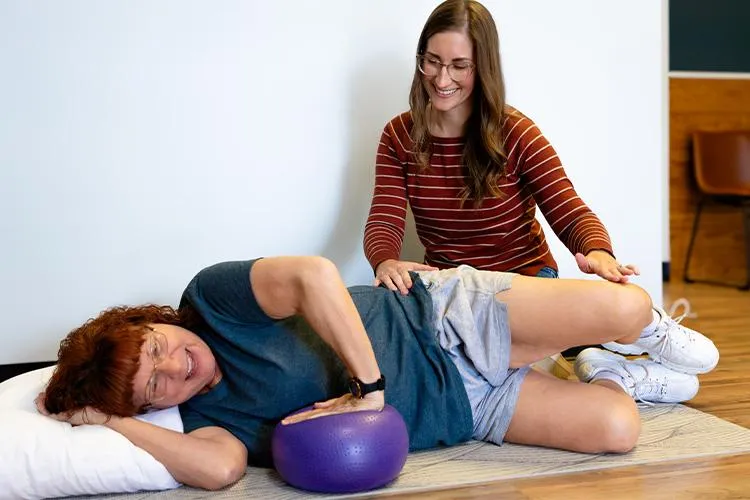
Where To Find Body Works Women's Health & Wellness

If you have any questions before scheduling an appointment or for general inquiries, please use the contact us button below. Our team will promptly reach out to assist you.
Opening Hours
Monday: 7:30am -6pm
Tuesday: 7:30am-4pm
Wednesday: 8am -5:30pm
Thursday: 7:30am - 3pm
Friday: 7:30am - 3pm
Saturday: Closed
Sunday: Closed

